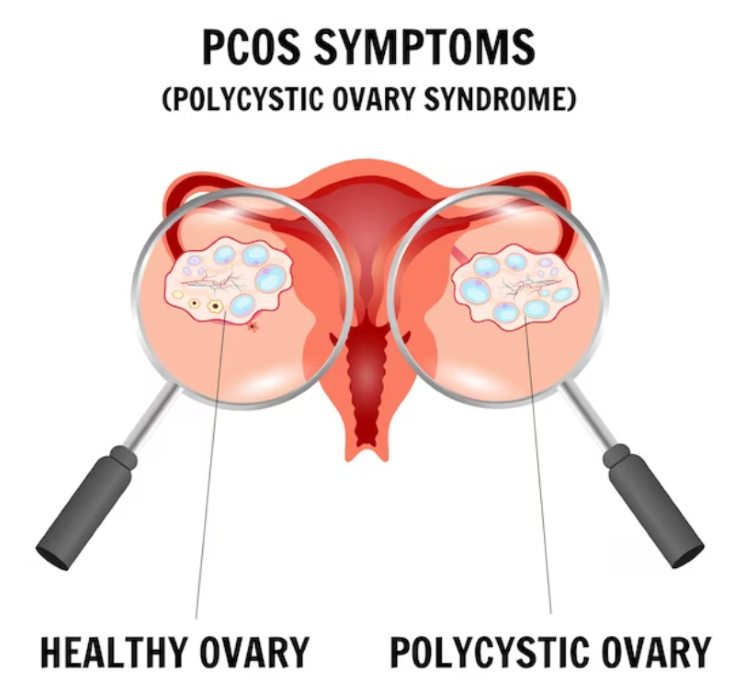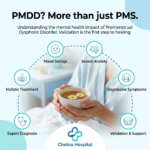Polycystic Ovary Syndrome (PCOS) is a hormonal disorder that affects millions of women of reproductive age. It occurs when the ovaries produce an abnormal amount of androgens (male hormones), which can interfere with ovulation and cause a variety of physical and emotional symptoms. Despite being common, PCOS often goes undiagnosed due to its wide range of symptoms that are sometimes mistaken for other health issues.
Common Symptoms of PCOS
Being aware of the signs of PCOS is the first step toward early diagnosis and effective management. Here are the most common symptoms women with PCOS experience:
1. Irregular or Missed Periods
Irregular menstrual cycles are one of the most noticeable signs of PCOS. Women may have infrequent periods (fewer than 9 per year), prolonged cycles, or missed periods altogether. This occurs due to lack of regular ovulation.
2. Excess Hair Growth (Hirsutism)
PCOS leads to higher levels of androgens, which can result in unwanted hair growth on areas such as the face, chest, back, or abdomen. This condition, known as hirsutism, affects up to 70% of women with PCOS.
3. Severe Acne and Oily Skin
Hormonal imbalances associated with PCOS often cause persistent acne, especially on the lower face, jawline, and upper back. The skin may also become excessively oily.
4. Hair Thinning or Hair Loss
While excess body hair may appear, hair on the scalp can become thinner or fall out, a condition similar to male-pattern baldness.
5. Weight Gain or Difficulty Losing Weight
Many women with PCOS struggle with weight gain, especially around the abdomen. Even with regular exercise and a balanced diet, losing weight may be difficult due to insulin resistance.
6. Mood Swings, Anxiety, or Depression
PCOS doesn’t just affect physical health—it also impacts mental well-being. Hormonal changes can lead to mood swings, anxiety, low self-esteem, and depression.
7. Infertility
PCOS is one of the leading causes of female infertility. Irregular or absent ovulation makes it harder to conceive without medical assistance.
8. Dark Skin Patches
Some women with PCOS develop dark, velvety patches of skin, usually around the neck, armpits, or groin. This is known as acanthosis nigricans and is linked to insulin resistance.
When to See a Doctor
If you’re experiencing any of the above symptoms, it’s essential to consult a gynaecologist. PCOS can lead to long-term health risks like type 2 diabetes, high cholesterol, high blood pressure, and uterine cancer if not properly managed.
At Chetna Multispeciality Hospital, Chinchwad, our expert gynaecologists provide accurate diagnosis and personalized treatment plans to help women manage PCOS effectively—through medication, lifestyle modifications, and fertility support if needed.
For Consultation Contact us on 9168690447 / 9158681123
Website –
Address – Chetna Hospital, Sambhajinagar, MIDC, G Block, Near Rotary Club, Chinchwad 411019
.
.
.
#hospital#pune#pcmc#chinchwad#health#healthcare#gynaecologist#femalegynaecologist#gynaecologistappointment#gynac#gynaecologistdoctor#gynaecologisthospital#goodgynaecologist#gynaecologistspecialist.













